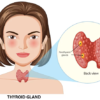Supporting Elderly Health with Ayurveda: A Holistic Approach
Supporting Elderly Health with Ayurveda: A Holistic Approach is a natural part of life, and maintaining health and vitality as we age is a significant concern for many. Ayurveda, the ancient system of medicine from India, offers a holistic approach to health that can be particularly beneficial for elderly individuals. This traditional practice emphasizes balance, prevention, and personalized care, which can help seniors lead healthier, more fulfilling lives. In this blog, we’ll explore how Ayurveda supports elderly health, focusing on its principles, dietary recommendations, lifestyle practices, and common treatments.
Understanding Ayurveda
Ayurveda, which translates to “the science of life,” is a comprehensive system of medicine that dates back over 5,000 years. It is based on the idea that health and wellness depend on a delicate balance between the mind, body, and spirit. According to Ayurveda, each person has a unique constitution, or “dosha,” which is a combination of three vital energies: Vata, Pitta, and Kapha.
- Vata is associated with air and space, and governs movement and creativity.
- Pitta relates to fire and water, and controls digestion and metabolism.
- Kapha is connected to earth and water, and influences structure and stability.
As people age, their dosha balance can shift, often leading to common health issues. Ayurveda aims to restore and maintain balance through diet, lifestyle, and natural remedies, tailored to each individual’s unique needs.
Ayurvedic Principles for Elderly Health

1. Balancing the Doshas
In elderly individuals, the Vata dosha often becomes predominant. This shift can lead to issues such as dryness, anxiety, and digestive problems. Ayurveda addresses these concerns by recommending practices and diets that pacify Vata and balance the other doshas.
- Vata: To balance Vata, Ayurveda suggests warm, moist, and nourishing foods. Gentle, grounding activities like yoga and meditation can help calm the nervous system and improve mental clarity.
- Pitta: For those with a dominant Pitta dosha, cooling and soothing practices are advised. This includes consuming cooling foods, avoiding excessive heat, and engaging in calming activities.
- Kapha: If Kapha is predominant, which can occur if there’s a tendency towards sluggishness or weight gain, Ayurveda recommends stimulating activities and a diet that is light and invigorating.
2. Dietary Recommendations
Diet plays a crucial role in Ayurvedic health management. For the elderly, a balanced diet tailored to their dosha can help maintain energy levels, digestion, and overall well-being.
- Warm, Nourishing Foods: Meals should be easy to digest and warm. Soups, stews, and cooked vegetables are ideal. Spices like turmeric, ginger, and cinnamon are beneficial for their anti-inflammatory and digestive properties.
- Hydration: Staying hydrated is essential, but it’s important to consume warm fluids. Herbal teas and warm water with a splash of lemon can be soothing and beneficial.
- Protein and Fiber: Including adequate protein (from sources like legumes, tofu, and fish) and fiber (from fruits, vegetables, and whole grains) helps maintain muscle mass and digestive health.
3. Lifestyle Practices
Lifestyle changes can greatly impact elderly health. Ayurveda recommends adopting routines that support overall well-being and prevent disease.
- Daily Routine: Establishing a consistent daily routine can be comforting and beneficial. This includes waking up early, eating meals at regular times, and maintaining a regular sleep schedule.
- Exercise: Gentle, regular exercise such as walking, yoga, or tai chi helps maintain mobility, flexibility, and strength. Ayurveda emphasizes moderation and encourages exercises that are not overly strenuous.
- Stress Management: Practices like meditation, deep breathing, and mindfulness can help manage stress and promote mental health. Ayurveda considers a calm mind essential for overall health.
Common Ayurvedic Treatments for the Elderly
Ayurveda offers several treatments that can be particularly effective for elderly individuals, addressing both physical and mental health concerns.
1. Abhyanga (Oil Massage)
Abhyanga is a traditional Ayurvedic oil massage that uses warm herbal oils tailored to an individual’s dosha. This practice helps improve circulation, soothe the nervous system, and maintain skin health. Regular oil massages can be particularly beneficial for elderly individuals experiencing joint pain or dryness.
2. Panchakarma
Panchakarma is a detoxification process that involves a series of therapeutic treatments to cleanse the body of toxins. While it may seem intense, modified versions can be adapted for elderly individuals to address issues such as digestive problems, fatigue, or accumulation of toxins.
3. Herbal Remedies
Ayurveda utilizes a variety of herbs to support health and treat specific conditions. Common herbs for elderly health include:
- Ashwagandha: Known for its adaptogenic properties, it helps reduce stress, improve vitality, and enhance overall stamina.
- Turmeric: With its anti-inflammatory properties, turmeric can support joint health and digestion.
- Brahmi: This herb is beneficial for cognitive function, memory, and reducing anxiety.
Incorporating Ayurveda into Daily Life
Integrating Ayurvedic principles into daily life doesn’t require a complete overhaul. Small, consistent changes can make a significant difference in health and well-being.
- Start with Diet: Begin by incorporating more warm, cooked foods into your diet and gradually introduce Ayurvedic spices and herbs.
- Adopt a Routine: Establish a simple daily routine that includes time for relaxation, gentle exercise, and balanced meals.
- Seek Professional Guidance: Consulting with an Ayurvedic practitioner can provide personalized recommendations based on individual health needs and dosha imbalances.
Conclusion
Ayurveda offers a time-tested, holistic approach to supporting elderly health. By focusing on balance, personalized care, and preventive measures, Ayurveda helps address the unique challenges of aging and promotes overall well-being. Embracing Ayurvedic principles can lead to improved health, greater vitality, and a more fulfilling life in the later years. As with any health approach, it’s important to consult with healthcare professionals to ensure that Ayurvedic practices complement conventional medical care and are suitable for individual health conditions.








Leave a reply